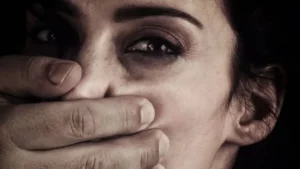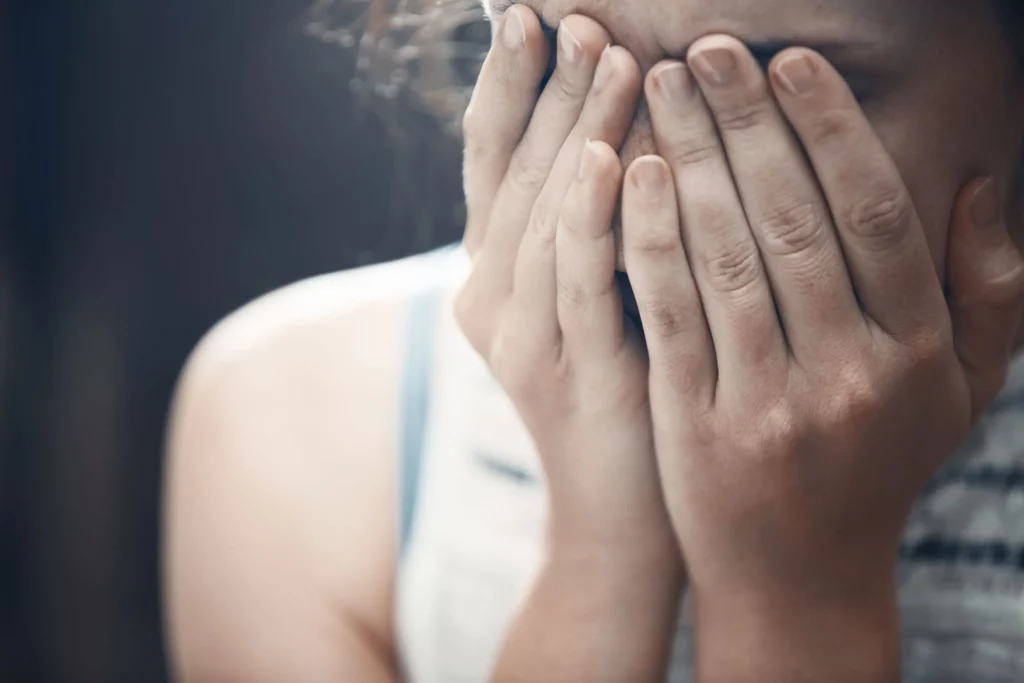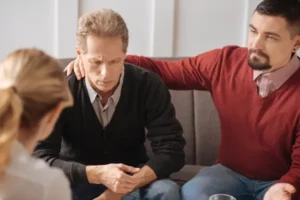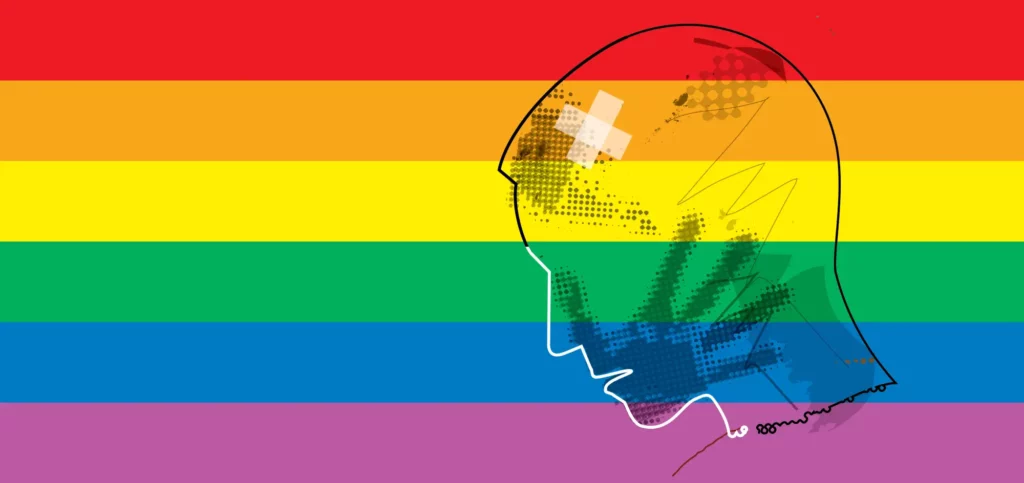Our society has been striving for equality and acceptance, and yet, distressingly, domestic violence persists as an alarming issue within the LGBTQ community. This article explores domestic violence within LGBTQ relationships, its effects, and the challenges victims face in seeking safety and justice. So let’s dive in and explore this vital information.
Contents
Statistics about Domestic Violence and the LGBTQ Community
 Statistical data paints a clear picture of the pressing issue of domestic violence within the LGBTQ community. Here are nine statistics that highlight the severity of this problem:
Statistical data paints a clear picture of the pressing issue of domestic violence within the LGBTQ community. Here are nine statistics that highlight the severity of this problem:
- Studies indicate that domestic violence affects approximately 25-30% of LGBTQ relationships, a rate comparable to, if not higher than, that in heterosexual relationships.
- According to the Centers for Disease Control and Prevention, 26% of gay men and 37% of bisexual men have experienced rape, physical violence, or stalking by an intimate partner in their lifetime, compared to 29% of heterosexual men.
- The same CDC report indicates that 44% of lesbian women and 61% of bisexual women have experienced rape, physical violence, or stalking by an intimate partner at some point.
- A survey by the National Center for Transgender Equality found that 54% of transgender individuals experienced some form of intimate partner violence.
- The Trevor Project found that LGBTQ adults who experienced any form of violence, including domestic violence, were at a significantly increased risk for suicide.
Signs That There Is Domestic Violence In An LGBTQ Relationship

Recognizing the signs of domestic violence in an LGBTQ relationship is crucial for intervention and support. Here are some indicators of domestic violence in an LGBTQ relationship:
- Physical Signs: Bruises, scratches, or other unexplained injuries can be indicative of physical abuse. Victims may also show signs of poor health, such as chronic fatigue, unexplained weight loss or gain, or sleeping disorders.
- Emotional and Psychological Signs: Look for changes in behavior or mood. This might include depression, anxiety, low self-esteem, or uncharacteristic fearfulness. Victims may also worry excessively about pleasing their partner or show signs of being controlled.
- Controlling Behavior: Abusers often try to control their victims. This could manifest as isolating the victim from friends and family, managing their finances, or deciding what the victim can or cannot do.
- Threats and Intimidation: The abusive partner may use threats of outing the victim’s sexual orientation or gender identity to their family, friends, or employer. This can be a significant power dynamic in an LGBTQ relationship and a potent form of control.
- Sexual Abuse: Non-consensual sexual activities or pressuring the victim into unwanted sexual behavior are forms of sexual abuse. If a person feels uncomfortable or fearful about refusing sexual activities, it’s a red flag.
- Digital Abuse: Abusers may monitor their victim’s online activities, demand passwords, or use social media as a platform for harassment and control.
- Identity Abuse: Within LGBTQ relationships, an abuser might belittle the victim’s sexual orientation or gender identity, or prevent the victim from expressing their identity (like stopping a transgender person from taking hormone therapy).
Impact Of Domestic Violence On LGBTQ Relationships

Domestic violence has profound effects on LGBTQ relationships, influencing both the victims and the community at large. Here are the significant impacts of domestic violence on LGBTQ relationships:
- Physical Health Impact: Domestic violence often results in immediate physical harm to the victim, ranging from minor injuries to life-threatening conditions. Moreover, chronic exposure to such violence can lead to long-term health issues like heart disease, gastrointestinal disorders, chronic pain, and sexual health issues.
- Mental Health Impact: The psychological trauma of enduring domestic violence can lead to mental health conditions such as depression, anxiety, post-traumatic stress disorder (PTSD), and increased risk of substance abuse. Survivors might also experience low self-esteem, suicidal thoughts, and feelings of guilt or shame.
- Social Impact: Victims of domestic violence may become isolated due to the abusive partner’s controlling behaviors, leading to a loss of social support networks. This isolation can exacerbate feelings of helplessness and loneliness.
- Impact on Identity: In LGBTQ relationships, abusers may weaponize a person’s sexual orientation or gender identity as a tool for abuse, which can have severe effects on the victim’s self-perception and comfort with their identity.
- Economic Impact: Abusers often exert control over the financial resources in a relationship, limiting the victim’s ability to leave the abusive situation. This economic abuse can lead to poverty, homelessness, and reliance on social services.
- Community Impact: Domestic violence within LGBTQ relationships reinforces harmful stereotypes and can contribute to stigma within and outside the community. It can also hinder efforts toward broader societal acceptance and equality.
- Barriers to Accessing Help: Lastly, fear of stigma or discrimination, legal hurdles, and a lack of LGBTQ-inclusive resources can prevent victims from seeking help, perpetuating the cycle of abuse.
What Stops The Victims To Seek Help?
 Victims of domestic violence, particularly in the LGBTQ community, often face several barriers that prevent them from seeking help. Here are some reasons victims might hesitate to seek help:
Victims of domestic violence, particularly in the LGBTQ community, often face several barriers that prevent them from seeking help. Here are some reasons victims might hesitate to seek help:
- Fear of Not Being Believed: Victims often worry that they will not be taken seriously if they disclose their experiences, due to societal biases and stereotypes.
- Fear of Retaliation: Victims might be afraid of further violence or other forms of retaliation from the abuser if they attempt to seek help.
- Lack of LGBTQ-Inclusive Services: There is a severe lack of domestic violence services specifically tailored for the LGBTQ community. Victims might feel uncomfortable or unsafe seeking help from services that do not explicitly include or acknowledge them.
- Fear of Discrimination: LGBTQ individuals may fear homophobia, transphobia, and other forms of discrimination which could deter them from reporting abuse.
- Social Isolation: Abusers often isolate their victims, making it difficult for them to reach out to friends, family, or organizations for support.
- Economic Dependency: If the victim is financially dependent on the abuser, they might fear losing their source of income or housing if they seek help.
- Identity Exposure: If a victim’s sexual orientation or gender identity is not publicly known, they may fear that seeking help could expose this information, resulting in an outing, stigma, or discrimination.
- Internalized Shame or Guilt: Victims might blame themselves for the abuse, feel ashamed, or believe they deserve the treatment, all of which can prevent them from seeking assistance.
- Love for the Abuser: Despite the abuse, victims might still have strong emotional ties to their abusers, making it harder for them to leave the relationship or seek help.
- Lack of Legal Protection: In many places, legal protections for LGBTQ individuals are inadequate or non-existent, which can make victims hesitant to involve the authorities.
What They Don’t Know Is – Help Is Available!
 Despite the numerous barriers faced by LGBTQ victims of domestic violence, it’s essential to remember that help is indeed available. Here are various forms of assistance that individuals can seek:
Despite the numerous barriers faced by LGBTQ victims of domestic violence, it’s essential to remember that help is indeed available. Here are various forms of assistance that individuals can seek:
- Hotlines: Numerous national and local hotlines offer immediate assistance, counseling, and guidance. These include the National Domestic Violence Hotline, Trevor Project Lifeline, and Trans Lifeline, all of which are staffed with trained professionals who understand the unique challenges faced by the LGBTQ community.
- LGBTQ-Friendly Shelters and Services: More and more shelters and organizations are becoming LGBTQ-inclusive, providing safe places to stay, access to resources, and comprehensive support services. It’s crucial to research local resources or ask trusted friends or professionals for recommendations.
- Counseling and Therapy: Mental health professionals, particularly those trained in LGBTQ issues and trauma, can provide essential support, from crisis intervention to long-term healing.
- Legal Aid: Some organizations offer legal aid to LGBTQ victims of domestic violence, including assistance with restraining orders, divorce proceedings, custody disputes, and navigating the criminal justice system.
- Financial Assistance: There are services available that provide financial aid to victims of domestic violence, helping them with everything from immediate necessities to long-term economic independence.
- Support Groups: Many communities have support groups for survivors of domestic violence. These groups can provide a safe space to share experiences, gain strength, and learn coping strategies.
- Health Services: Some health centers offer specialized care for LGBTQ individuals, including those who have experienced domestic violence. These services may include physical check-ups, sexual health services, and trauma-informed care.
- Online Resources: Numerous online platforms provide resources, guidance, and community support for LGBTQ individuals experiencing domestic violence. Websites like the National Coalition Against Domestic Violence and GLBT National Help Center offer a wealth of information and resources.
Conclusion
Domestic violence is a pressing issue within the LGBTQ community, often going unnoticed or unreported due to societal biases, stigma, and discrimination. However, recognizing the signs of abuse, understanding the impacts, and raising awareness about the barriers that prevent victims from seeking help are critical steps in addressing this issue.
Life may sometimes be challenging for people from LGBTQ community, but Online LGBTQ Counseling can help. Get experienced LGBTQ therapists at PrideMantra: Book a trial LGBTQ therapy session


